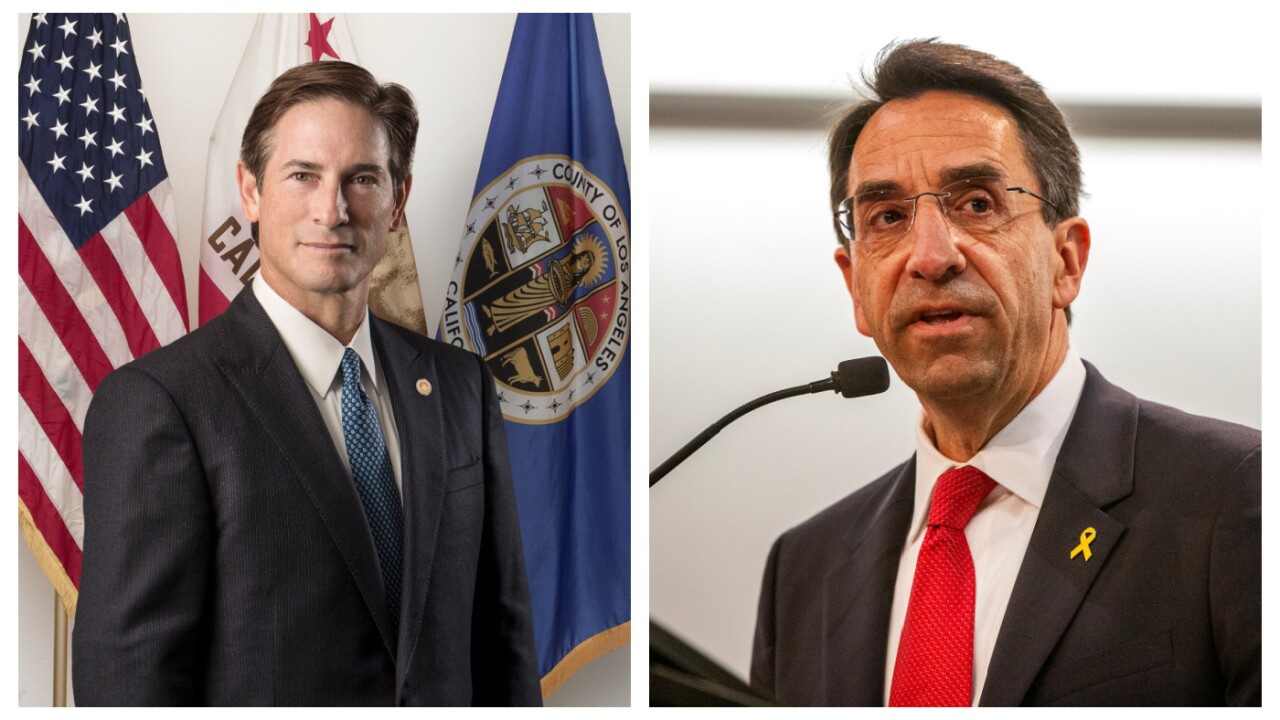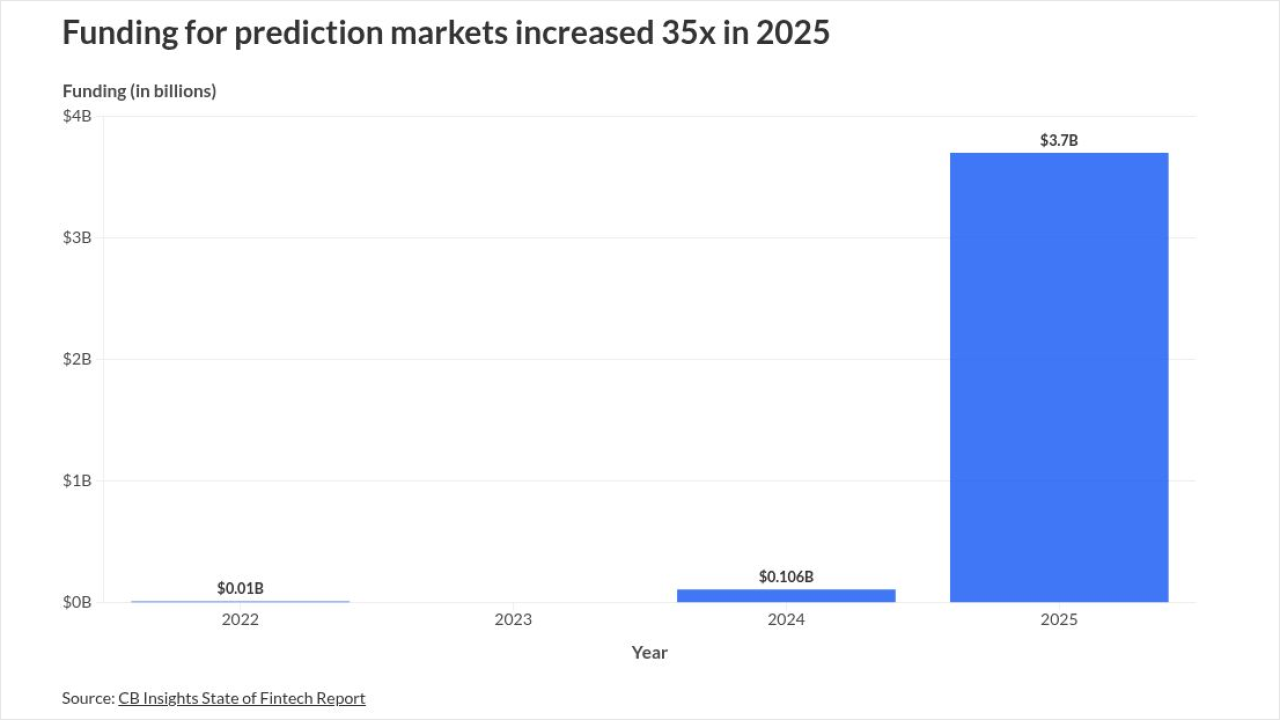

As federal regulators
In a
Bank of America CEO Brian Moynihan, speaking at an industry conference Tuesday afternoon, said he's encouraged by regulators addressing the industry's concerns. He added that the $3.3 trillion bank is well-positioned to adapt to the proposed framework, but he questions why capital requirements are being raised in the first place.
"We feel good about it. But I'd say there's an old phrase, 'Show them death, and they'll take despair.' I sometimes feel that that's what we just got," Moynihan said. "They showed us 20, then they're saying, 'Take 10.' Let's think about the logic."
Although banks have built up their capital cushions to prepare for heightened requirements, executives argue that being forced to bulk up more will limit their ability to make affordable loans to small and middle-market businesses. Moynihan said Tuesday that a 10% capital increase at Bank of America still translates to $160 billion in loans the company could no longer make.
But a bare capital requirement isn't the only piece of Basel III that banks are concerned about. Daniel Pinto, president and chief operating officer at JPMorgan Chase, said at an industry conference Tuesday that he's eager to see how the central bank tweaks other parts of the proposal, such as regulations regarding risk-weighted assets.
"Obviously, 10% is better than 20%," Pinto said. "[But] it's not just the overall number. It's the composition of it, and we have no idea yet what the composition is."
Overall, the changes outlined by Barr would result in a 9% increase in capital for global systemically important banks, or GSIBs, rather than 19%,
The Basel III endgame is the U.S. implementation of an
During a question and answer session following his speech, Barr said the initial goal of the Basel III endgame was to address unresolved issues from the global financial crisis in 2008, but regulators ended up adjusting their approach
"When we were working on our 2023 proposal, we had very fresh in mind the … the March 2023 banking stress where we had three of the largest bank failures in U.S. history, so when we were thinking about the various trade-offs and how conservative to be, we were quite conservative," Barr said. "And what we got back in the comment process was a lot of commenters saying 'Yeah, you were very conservative, but you didn't take into account enough unintended consequences, you didn't take into account enough of the trade-offs involved in capital.'"
Barr said those comments were heard and will be addressed in the re-proposed rule, which said should be issued by the three agencies "soon."
The outcome appears to be a win for the large bank trade groups, which
Rob Nichols, president of the American Bankers Association, issued a statement calling the changes outlined by Federal Reserve Vice Chair for Supervision Michael Barr "welcome" and an "absolutely necessary" do-over. But he stopped short of lumping any praise on the modifications.
"We will carefully review this new proposal with our members, recognizing that America's banks are already well-capitalized and, as Vice Chair Barr acknowledged today, any increase in capital requirements will still carry a cost for the economy and must be appropriately tailored," Nichols said, adding that he expects regulators "show their work" to demonstrate their new proposal is justified by data.
Similarly, the Financial Services Forum, which represents eight of the global systemically important banks, or GSIBs, acknowledged the significance of Barr's speech but said it needed to study the specifics more carefully.
"As we have said previously, it is essential that capital regulations avoid unnecessary and harmful impacts across the U.S. economy," said Kevin Fromer, the Forum's president and CEO, in a statement. "The revisions should comprehensively address the concerns that have been raised by a wide range of commenters citing the likely costs on families and businesses of all sizes. The agencies should also provide detailed quantitative analysis and policy justification."
Lindsey Johnson, CEO of the Consumer Bankers Association, echoed the call for robust data analysis with the re-proposal.
"As we have long said, this proposal would significantly constrain banks' ability to meet the lending needs of the millions of consumers and small businesses they serve," Johnson said in a statement. "Given the economic headwinds millions of consumers face today, it's more important than ever that regulators in Washington understand the cumulative impact regulations like this will have on the nearly two-thirds of consumers who are living paycheck to paycheck."
The Bank Policy Institute, which represents more than 40 of the largest banks in the country and has been a leading voice in the fight against the initial Basel III endgame proposal, did not issue a statement following the speech. The group also did not respond to a request for comment on Tuesday.
On Capitol Hill, Republicans and Democrats alike have
Sen. Tim Scott, R-S.C., the ranking member on the Senate Banking Committee, urged regulators to fully withdraw the proposal and start over from scratch. As it stands, Barr said the agencies plan to re-propose parts of the framework that have been changed while leaving the other elements open to continued commentary.
"For the last year, I have been consistent in my position that the Federal Reserve's Basel III endgame proposal will lead to higher costs and limited access to credit for hard working Americans," Scott said in a written statement. "Our financial regulators have yet to justify these changes and provide a comprehensive cost-benefit analysis. Today's announcement only underscores that this proposal should be withdrawn and properly re-proposed in its entirety. I will be closely monitoring these developments and look forward to engaging with the financial regulators directly."
Barr's remarks also drew criticism from the left. Sen. Elizabeth Warren, D-Mass., the progressive standard bearer who also sits on the Senate Banking Committee, slammed regulators for giving into the industry's demands.
"The revised bank capital standards are a Wall Street giveaway, increasing the risk of a future financial crisis and keeping taxpayers on the hook for bailouts," Warren said in a statement. "After years of needless delay, rather than bolster the security of the financial system, the Fed caved to the lobbying of big bank executives. I'll repeat what I warned nearly three years ago: Fed Chair Powell is a dangerous man whose actions make our banking system less safe."






